Rebuilding Beirut After the Blast: Anera’s Long-Term Recovery Efforts
On August 4, 2020, a massive explosion at the Port of Beirut tore through the heart of the city. It killed more than 200 people, injured some 7,000 and left nearly 300,000 residents without homes. Entire areas in vibrant neighborhoods like Karantina, Gemmayze and Mar Mikhael were reduced to rubble. But the destruction didn’t stop there. It compounded an already devastating collapse. Lebanon was in the grip of economic freefall, political dysfunction and growing poverty.
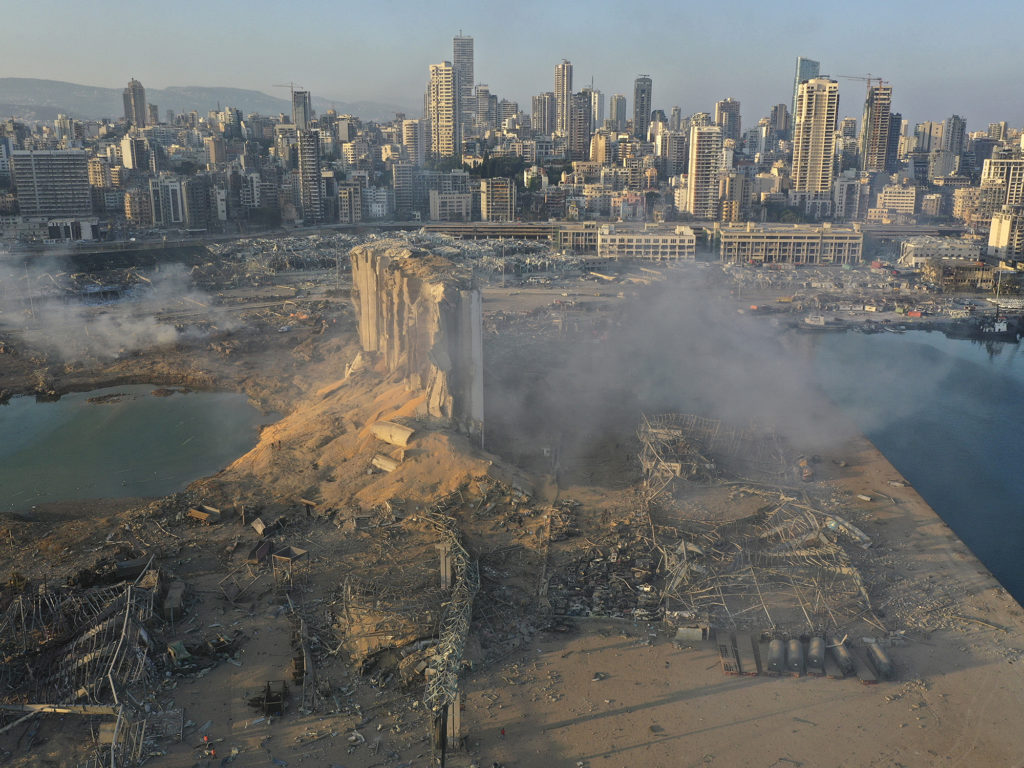

In the days that followed the explosions, Beirut’s residents faced an impossible task: rebuilding their lives amid trauma and collapse. Anera, a long-standing presence in Lebanon, responded immediately and has remained a steady partner throughout the recovery. Five years on, while the headlines have faded, the work of rebuilding continues. From shelter and education to food, jobs and mental health, Anera’s efforts in Beirut have helped lay the foundation for a stronger and more stable future.
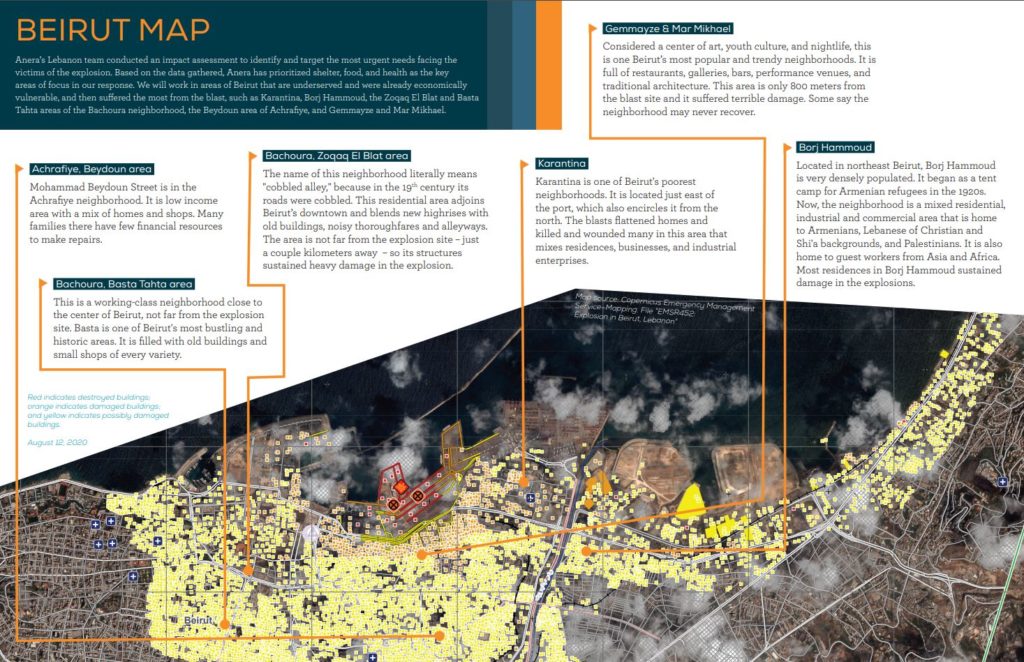

Restoring Shelter and Safety
The explosion destroyed thousands of homes and shops, leaving families exposed and displaced. Anera began by helping people secure their properties, boarding up windows, replacing doors and repairing critical damage. But temporary fixes were never enough.
Over time, Anera moved to more permanent rehabilitation, restoring more than 300 homes and small businesses across Karantina, Burj Hammoud and nearby areas. In these communities alone, Anera;s teams made comprehensive repairs to 120 homes, from structural stabilization to plumbing and wiring, benefiting more than 700 people. These were not just construction projects. They were steps toward reclaiming safety and dignity.
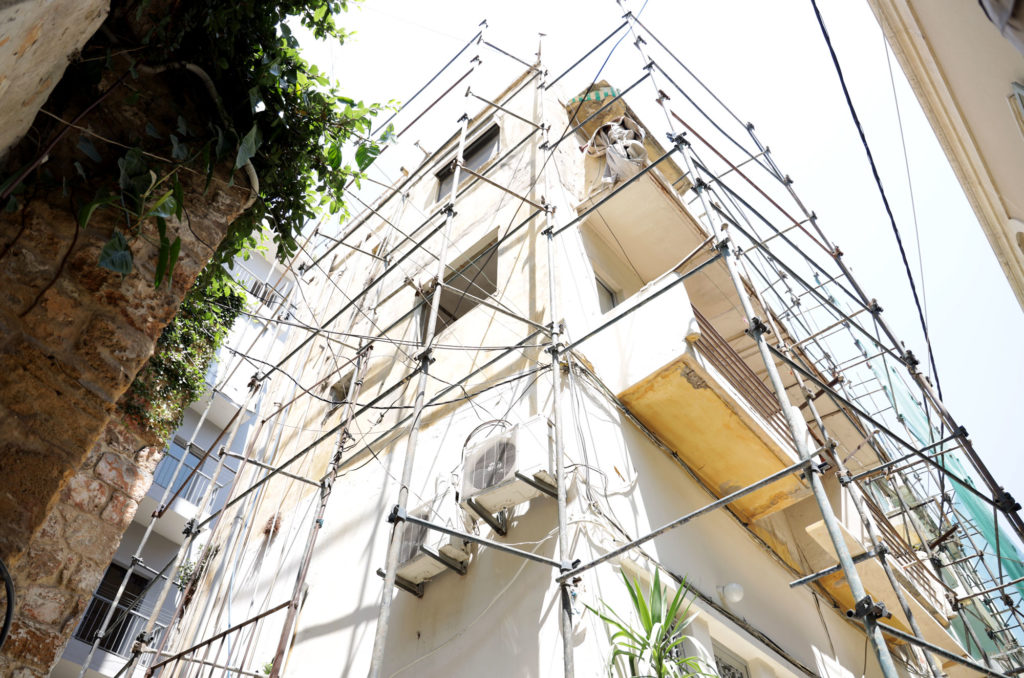

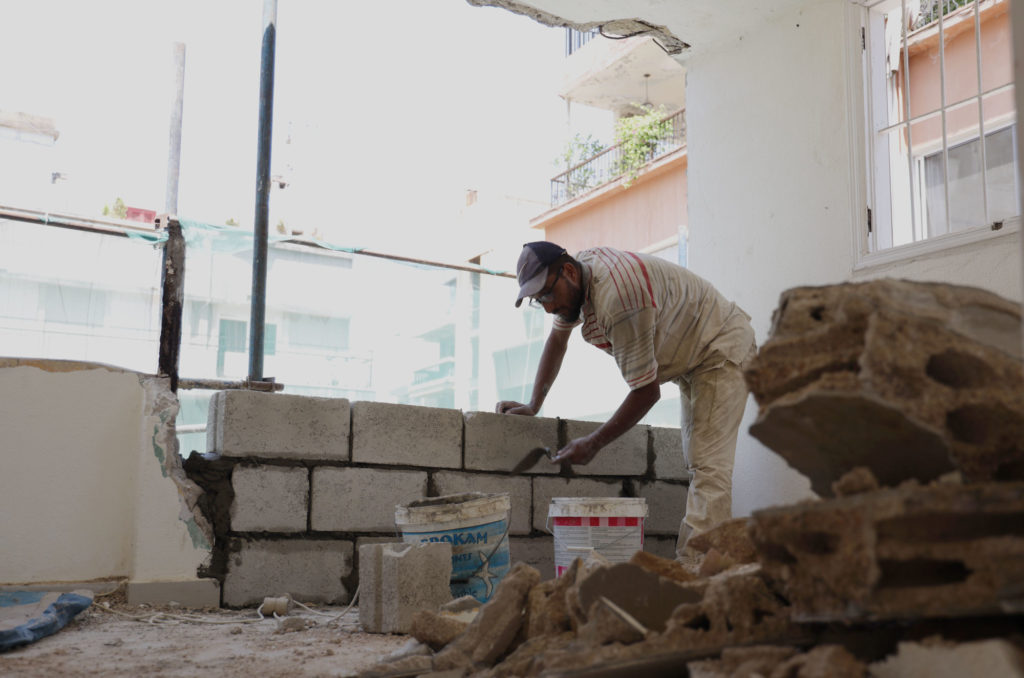

Investing in Skills and Opportunity: Vocational Education as a Cornerstone
Anera’s vocational education work sits at the heart of its recovery efforts in Beirut and across Lebanon. In the face of economic collapse and record-high youth unemployment, learning a skill has become one of the few pathways to stability. For many young people, it’s the difference between prolonged hardship and the chance to earn a living.
Since 2021, Anera has trained more than 7,000 individuals across the country in trades aligned with local market needs. In Beirut alone, some 500 youth have completed courses in construction, plumbing, hospitality, electrical work, food safety, graphic design and caregiving. These programs don’t just fill gaps. They open doors. Many graduates have secured paid apprenticeships or full-time jobs. Others have launched small businesses with the help of microgrants and mentorship.
This training work also connects back to every other part of Anera’s recovery strategy. Students trained in construction and masonry contributed to repairing homes damaged by the explosion. Those studying food safety and catering supported local kitchens and community kitchens that were serving displaced families. Trainees in healthcare and eldercare worked in clinics and homes, helping to ease the burden on Beirut’s overwhelmed health system.
For young people who dropped out of school or never had a chance to finish their education, these programs offer more than practical skills. They build confidence, foster independence and help participants imagine a future of possibilities in a country where hope often feels out of reach.
Anera’s vocational programs also include life skills training and mental health awareness sessions, recognizing that personal development and psychological well-being are essential to long-term success. By pairing job training with psychosocial support and financial literacy, Anera ensures that these opportunities are meaningful, holistic and lasting.
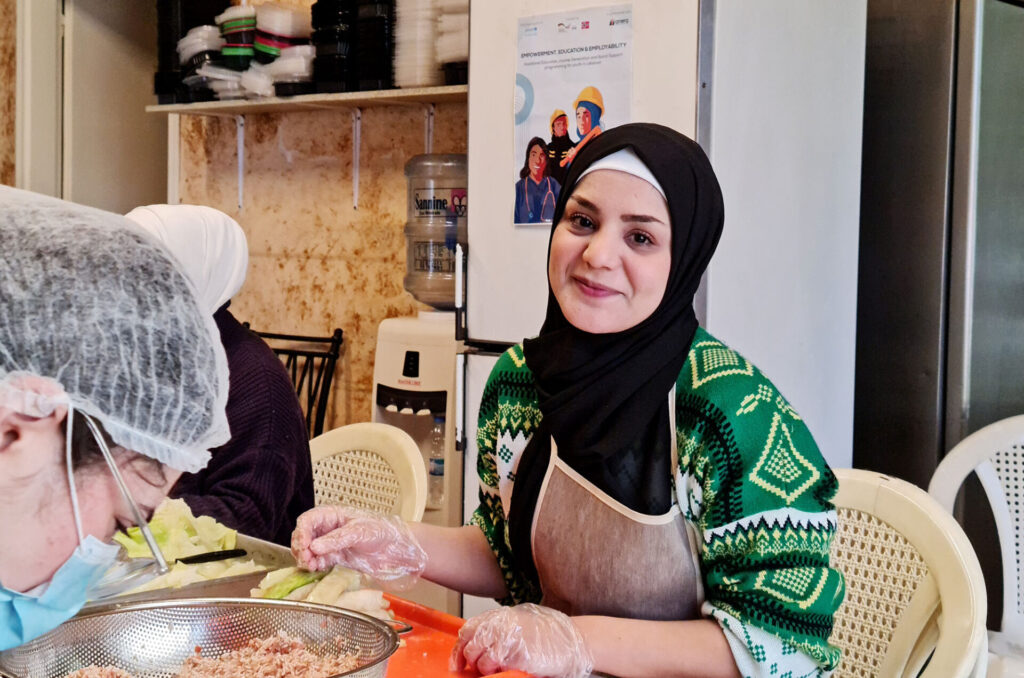

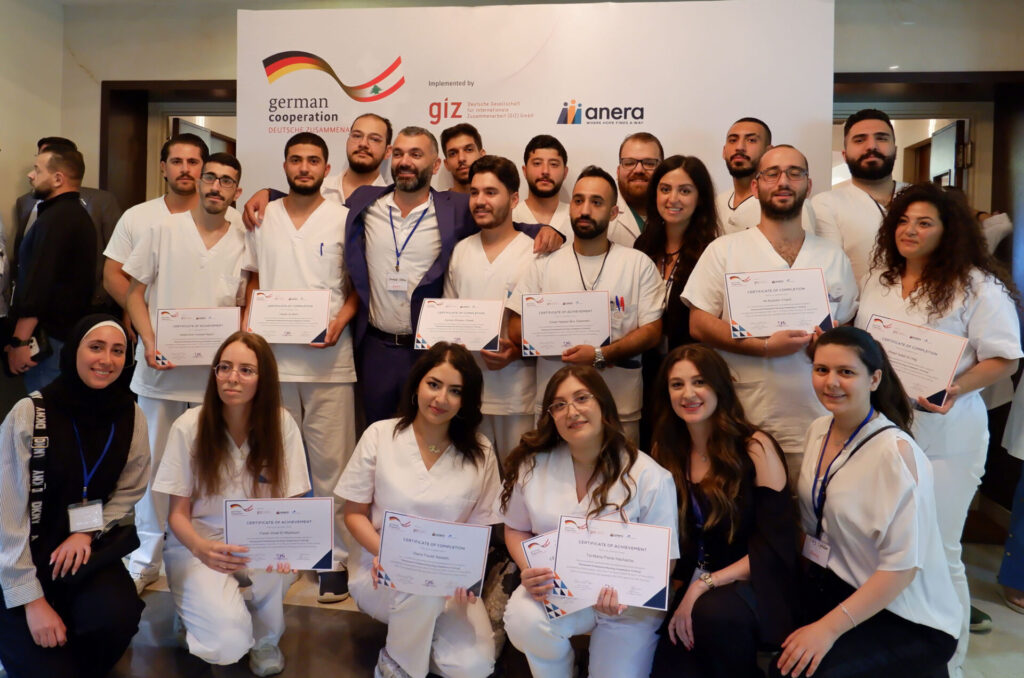

Keeping Children in School and Youth on Track
Lebanon’s education system has been pushed to its limits. In Beirut, the explosions damaged school buildings and displaced children from their classrooms. Economic hardship forced many students, especially refugees and low-income families, to drop out entirely.
Anera worked to meet these challenges head-on. We distributed more than 10,000 school supply kits to children in Beirut and Mount Lebanon and rehabilitated dozens of classrooms to ensure safe learning environments. For youth no longer able to continue formal education, Anera’s youth empowerment, education and employability program provided vocational training and life skills, offering a path forward.
In a city where young people have come of age during years of disruption, these programs offer more than education. They offer hope and direction.
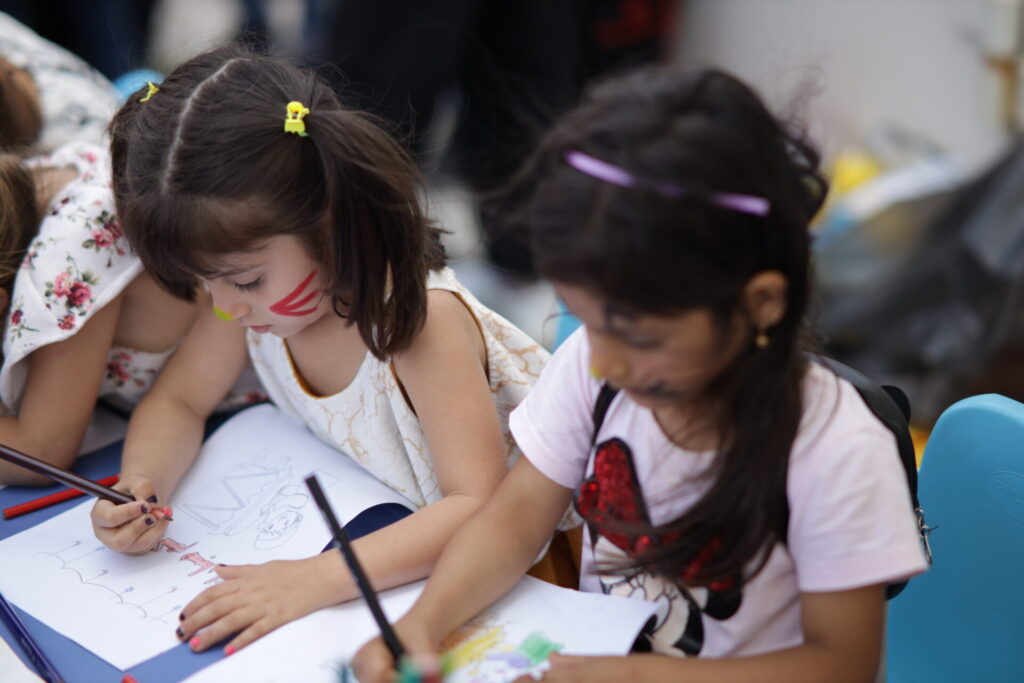

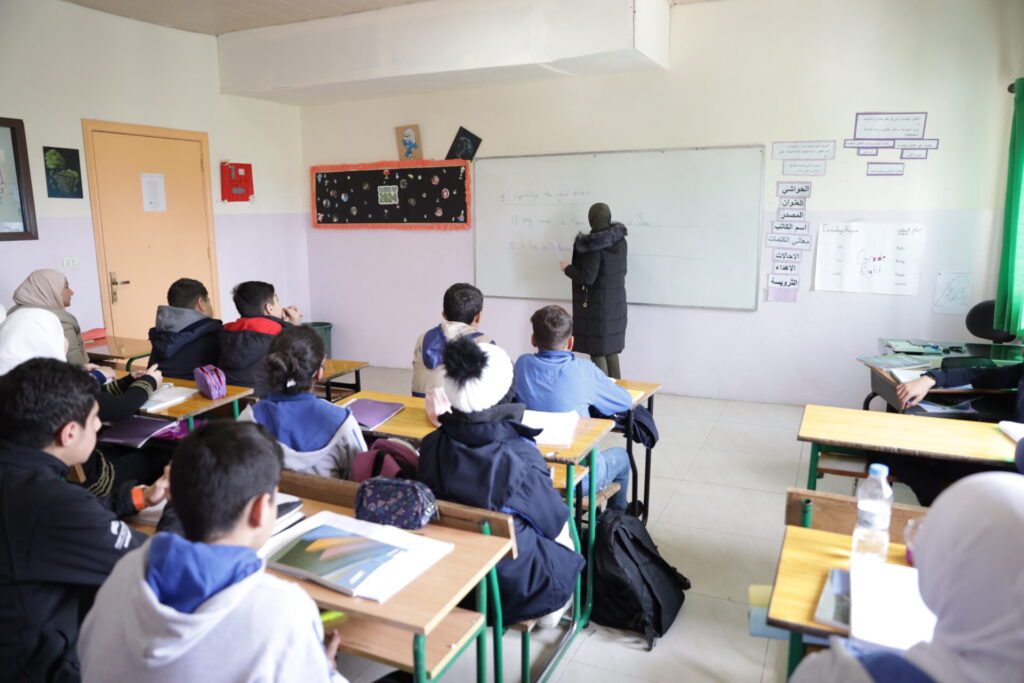

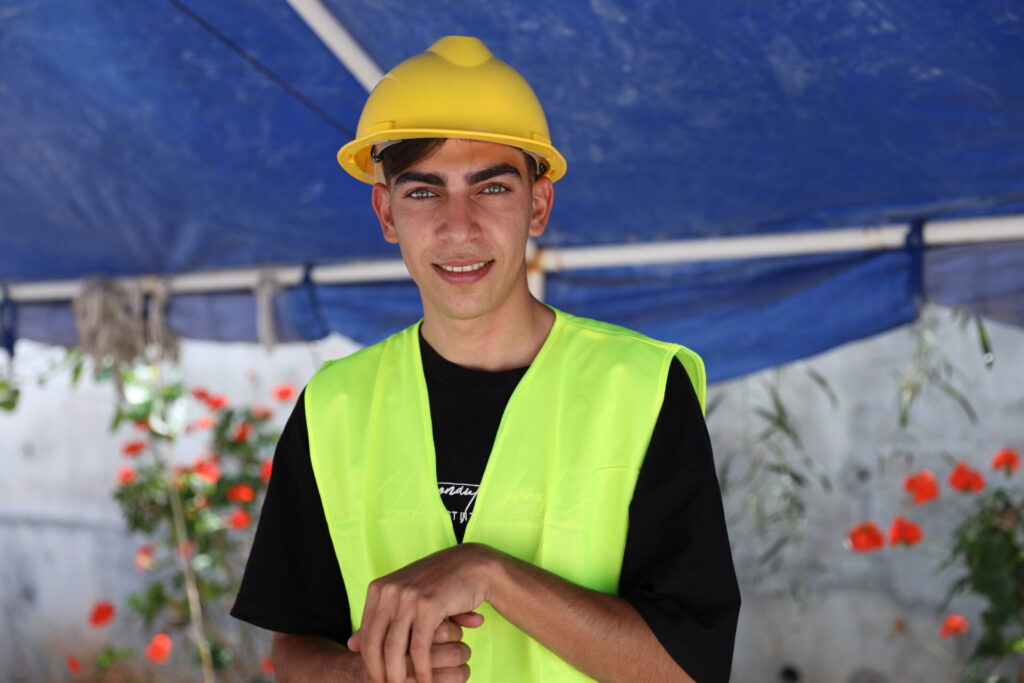

Helping People Heal, Mentally and Emotionally
The psychological toll of the explosions has been deep and lasting. Families who lost loved ones, children who witnessed violence, parents struggling with uncertainty. Many carry invisible wounds.
Anera made psychosocial support a core part of its recovery strategy. More than 1,200 children and caregivers in Beirut have accessed psychosocial support through group sessions, therapy and community healing activities. At the same time, Anera trained 40 youth volunteers and community health workers to provide psychological first aid and identify people in need. By embedding mental healthcare into its youth and education programs, Anera is helping individuals and families cope with trauma in meaningful and lasting ways.
Feeding Families and Growing Futures
The cost of food in Lebanon has soared since 2020, making nutritious meals out of reach for many families. In the months after the explosion, Anera distributed more than 5,000 food parcels and 10,000 hot meals in Beirut to help those in immediate need.
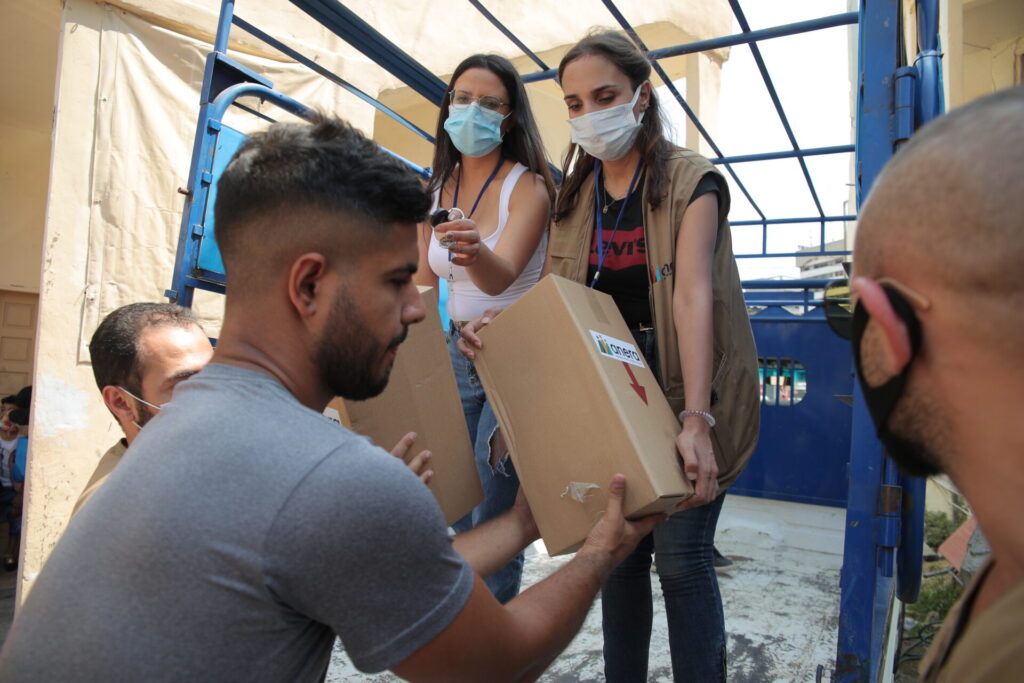

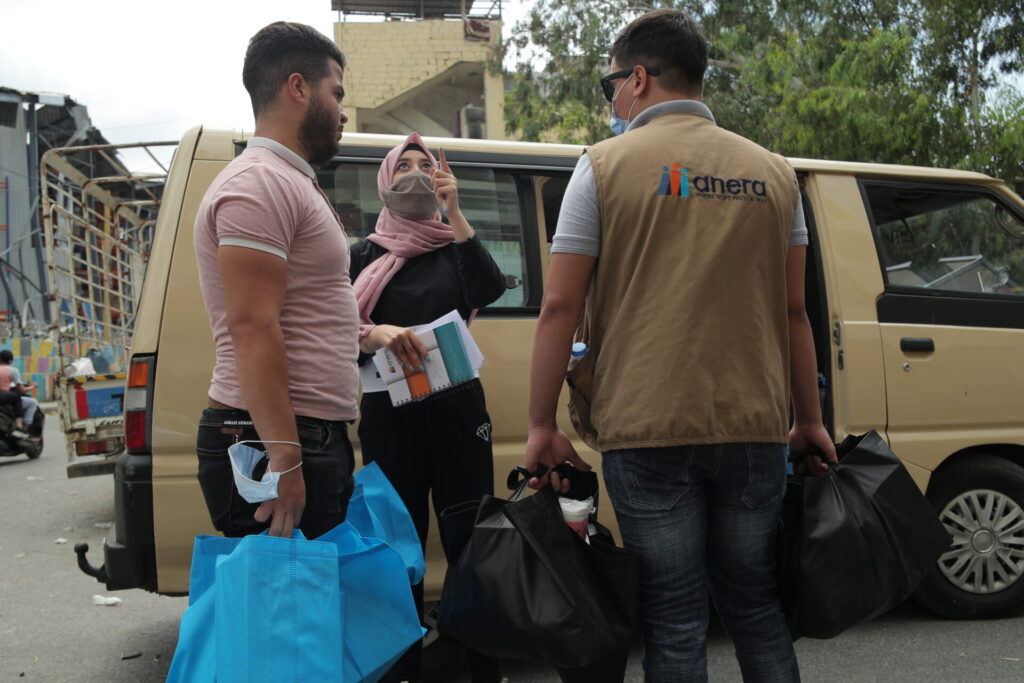

But the response didn’t end there. Anera launched urban agriculture projects to support long-term food security, installing more than 30 rooftop and backyard greenhouses in dense Beirut neighborhoods. These small gardens have enabled families to grow their own vegetables and herbs, reducing dependence on market food and restoring some control over what they eat.
Trainees from Anera’s agriculture and irrigation programs have played a key role in supporting these projects, applying their skills to help urban households establish and maintain productive gardens. In a city where space is tight and prices are unstable, these gardens provide both nourishment and stability.
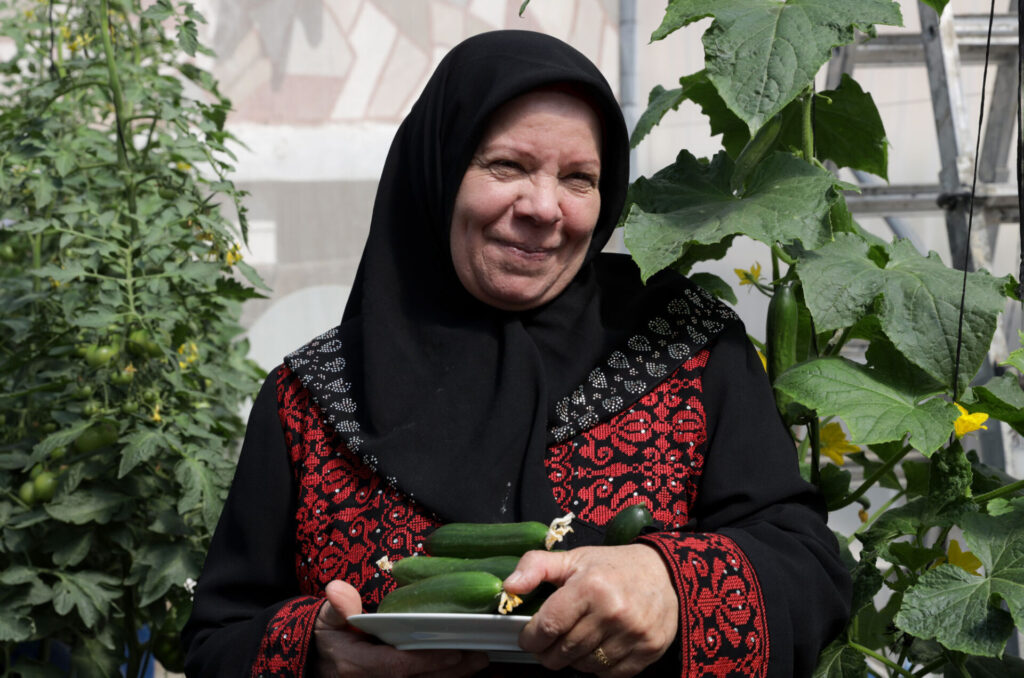

Strengthening Lebanon, One Community at a Time


What happens in Beirut doesn’t stay in Beirut. The capital is Lebanon’s cultural and economic center but it is deeply connected to the rest of the country. When clinics close in the Bekaa, hospitals in Beirut feel the strain. When food systems falter in rural areas, markets in the capital run dry. Anera’s work across Lebanon supports Beirut’s recovery.
This nationwide approach eases the burden on Beirut while building a stronger foundation across the country. No community can recover in isolation. Anera’s work in rural and urban areas alike helps create the conditions needed for long-term recovery.
A Long Road and a Lasting Commitment
Lebanon’s recovery is far from complete. Beirut still bears the scars of the explosion and the country continues to face economic collapse, political unrest and growing need. But there is also progress in classrooms filled with students, in homes that have been repaired, in rooftop gardens flourishing with fresh produce and in young people learning trades that carry them into a better future.


Anera will continue to walk alongside Beirut and Lebanon on this road. The organization’s commitment is rooted in decades of presence and in the belief that real recovery must be shared, community driven and sustained.
OUR BLOG
Related
As world leaders convene next week at the United Nations (UN), we are calling on all member states to act in accordance with the mandate the UN was charged with 80 years ago. What we are witnessing in Gaza is…
In this log, Anera provides updates on unfolding war in Palestine and our response. In some cases, additional activities may be added retroactively to the daily entries as we receive additional program reporting. Questions? See our FAQ page September 19,…
